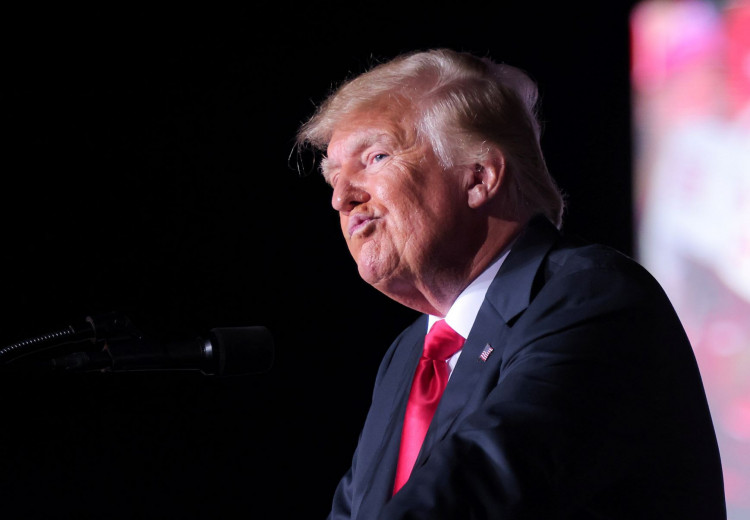Former President Donald Trump has posted a $175 million bond in the New York civil fraud case, preventing the seizure of his assets while the case is on appeal. The bond comes after a state appeals court ruling last week, which gave Trump and his co-defendants 10 days to post the reduced amount, down from the original $464 million judgment due on March 25.
Trump's attorney, Alina Habba, said in a statement on Monday that the former president would be vindicated on appeal, stating, "As promised, President Trump has posted bond. He looks forward to vindicating his rights on appeal and overturning this unjust verdict." The bond was provided by Knight Insurance, a California-based company, according to a court filing.
If Trump doesn't win on appeal, he will have to pay more than $450 million stemming from the judgment in New York Attorney General Letitia James' fraud case. A judge found that Trump and top executives at the Trump Organization had intentionally engaged in a scheme to improperly inflate his assets in financial statements, enabling him to claim favorable loan and insurance rates to which he was not entitled.
Before last week's ruling, Trump was liable for $454 million, most of the fraud judgment, with the amount growing by more than $111,000 daily due to added interest. Trump had argued that a bond to cover the $454 million civil fraud judgment was "a practically impossibility," because he doesn't have the cash to guarantee it right now.
Judge Juan Merchan expanded last week's gag order in Trump's hush-money case to include the judge's family members. The original gag order was designed to prevent Trump, the presumptive Republican presidential nominee, from attacking witnesses, jurors, and prosecutors in the case, as well as their families. In his ruling, Merchan rejected Trump's assertion that his statements "constitute core political speech."
Trump has been targeting Merchan's daughter in his social media posts, although Monday's gag order does not extend to Merchan himself or Alvin Bragg, the Manhattan district attorney who brought the case. Both have been recipients of the former president's ire, with Trump claiming, without evidence, that the cases against him are politically motivated.
Jury selection in the hush-money case is set to begin on April 15. Trump is accused of multiple counts of falsifying business records to keep an alleged affair secret at the end of the 2016 campaign. Although his criminal trial in New York is perhaps relatively less serious in scale compared to the civil fraud case, it would be a historic first trial against a sitting or former president.
Last month, in addition to ordering Trump to pay a significant financial penalty, Justice Arthur Engoron barred him from running a New York business for three years and prohibited him from getting loans from New York financial institutions for the same period. The ruling placed Trump, who has claimed in depositions and on social media to have $400 million or $500 million in cash on hand, under serious financial pressure.
Forbes Magazine currently estimates Trump's net worth at $6.4 billion, more than doubling after the parent company of his social media platform, Truth Social, went public last week. Around the same time a judge found him liable for fraud, Trump had to secure a $91 million bond after losing an unrelated defamation case brought by the writer E. Jean Carroll.
As the appeals process in the civil fraud case continues, it could take months or longer for the higher court to reach a decision. In the meantime, Trump's first criminal trial, centered on the alleged hush-money payments to an adult film star ahead of the 2016 election, is set to begin in Manhattan on April 15.






